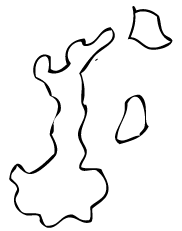Back in 2011, I wrote a post for this blog on the results of a workshop on the Open Government research agenda hosted by the Center for Technology in Government (CTG) at the University at Albany, State University of New York. Unfortunately, I wasn’t there. But somehow – albeit at a distance – it has shaped my interests so profoundly that now, after 4 years, I find myself working at CTG and dealing with the same interests and research topics.
Coincidentally, a couple of weeks ago I was asked to share my opinion on how to improve the Open Government ecosystem based on a paper that is reporting on the conclusions of the same, enlightening workshop. Here are just my 2 cents on some of the fundamental ways in which governments should change.
 1. Focus on the long-term vision, not just on quick-wins. Changes in the open government ecosystem require long time. Government organizations are complex and removing the constraints to innovation requires special efforts. The temptation is strong for leaders with short-term mandates to focus on the “easy part”, which generates immediate benefit from the point of view of political communication, but yields only short-term, unsustainable results (unfortunately, this is the history of most of the digital governance efforts in Italy).
1. Focus on the long-term vision, not just on quick-wins. Changes in the open government ecosystem require long time. Government organizations are complex and removing the constraints to innovation requires special efforts. The temptation is strong for leaders with short-term mandates to focus on the “easy part”, which generates immediate benefit from the point of view of political communication, but yields only short-term, unsustainable results (unfortunately, this is the history of most of the digital governance efforts in Italy).
2. But also commit to get things done. The vision itself is often not enough. The implementation of general principles and the execution of commitments are crucial. What is the reason behind the decision of a Country to be part of the Open Government Partnership? Diplomatic relations, hype, emulation, or real willingness to change? Why President Obama announced a brand new USASpending.gov in 2014 and after almost a year the website has less functionalities than the older version?
3. Improve legibility and accountability, not just add a dataset to the open data portal. Open data are sometimes seen as a panacea. While releasing government data in a useful way will enable new, unexpected uses in the open government ecosystem, open data are a means to an end, not an end in itself. Open data don’t automatically imply transparency or accountability. So a government cannot say “I am transparent, all my data are on line!”. Open data are a very powerful tool to improve transparency and accountability, for example, when data are “legible”, i.e. when it’s possible to track back the chain of responsibility behind that public action (a service, an infrastructure, a policy, etc.). It’s a highly risky challenge that government organization should take.
4. Change the way to communicate. Sometimes communication in public administrations is really old-fashioned. Some public “communication officers”, for example, still debate in their conferences about “branding”, “products”, and “techniques to avoid difficult questions from the journalists” (true!!). This sounds like marketing principles during the ’80s!
An evolution is necessary from a unidirectional model (government > citizens) to a multi-directional dialogue. This enables new forms of collaboration between the citizens and the government. For example, solving problems together and having the citizens telling this story would be a great form of communication.
5. Get involved with local communities. The paper refers to intentionality as one of the main factors shaping the Open Government Ecosystem. Just releasing open data is not enough. Governments should put in place proactive actions to stimulate the demand of their data. People and communities that are interested in a specific topic (e.g. NGOs, associations, unions…) probably ignore the very existence of that dataset that was just released. And, if they don’t, they probably don’t know what are the best way to analyze it, match it with other information, use it as a way to improve a given program or policy. So improving the “demand-side” of data publication (and related capabilities) is a brand new activity that the government should consider. [In the photo: the 2015 Hackathon of the Italian Open Data community Spaghetti Open Data]
6. (Not just IT) Change the organization. Processing external feedback coming form the ecosystem is a totally new business for a public organization. This requires a transformation of processes and internal structure.
Some Open Government initiatives are just “special projects”. They have no “manager”, no “office”, no “department”. When nothing at the organizational level really changes, even processing the feedback can be difficult and can hardly be efficiently sent to the organizational units responsible for that particular program/policy.
7. Not just IT… but IT matters, a lot. So many Open Government websites and mobile apps fail because they are simply not usable, not “sexy”, not interesting. They are not fast enough, easy enough to scale up and involve a critical mass of interested users. Also, the design of these tools has a lot to improve. Many public consultations fail as well because their websites are poorly designed. Public engagement initiatives could find new opportunities for improvement at the intersection between art, civic design, technology and government action.


